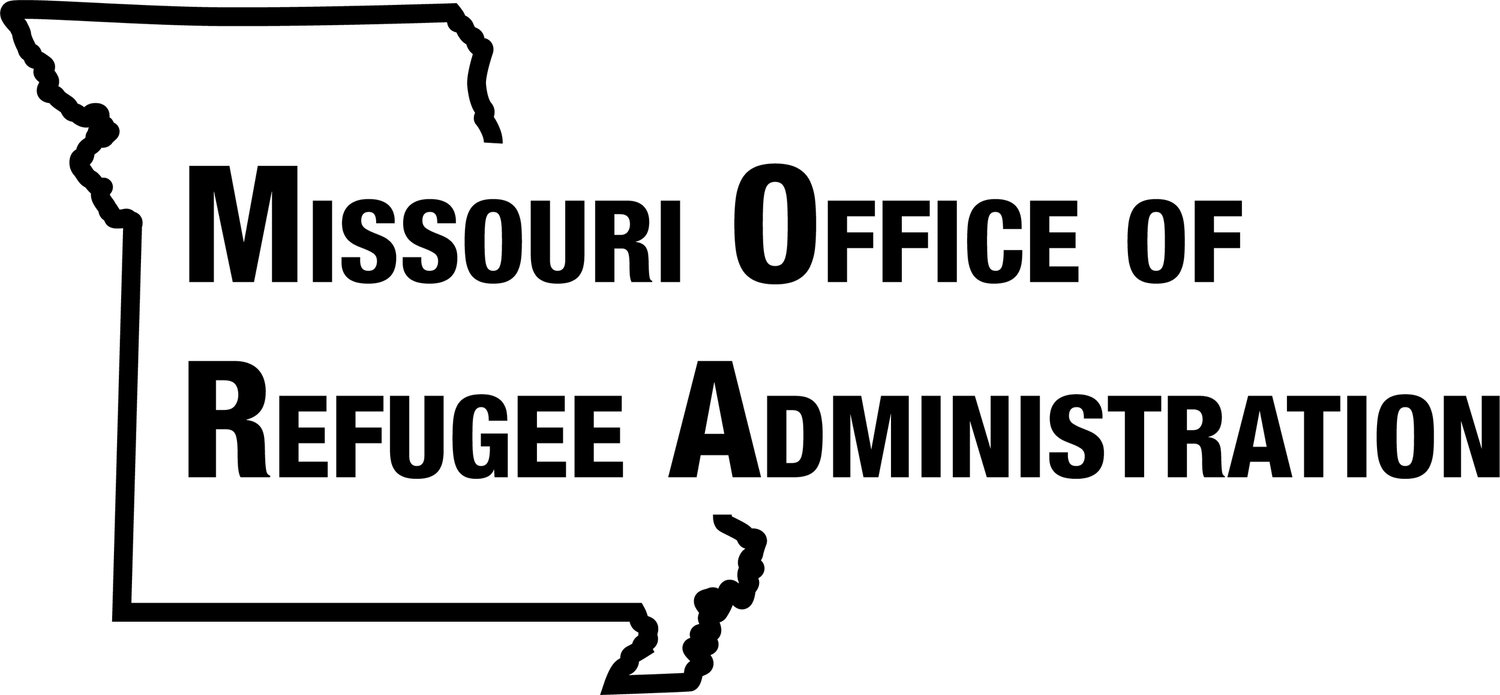Who We Serve
MO-ORA administers federal funds from the Office of Refugee Resettlement (ORR) to local resettlement agencies that provide services to new refugee arrivals.
These new arrivals are eligible to receive ORR Resettlement Services. Resettlement services provide new arrivals with tools and critical resources to rebuild their lives to ease their transition to living in the U.S. and support them in becoming productive members of their new communities.
-
A person from any country admitted as a refugee under section 207 of the Immigration and Nationality Act (INA).
-
A person from any county who has been granted asylum under section 208 of the INA. Asylum status is a form of protection available to people who:
Meet the definition of a refugee and
Are already in the U.S., and/or
Seeking admission at a port of entry.
-
A person paroled as a refugee or granted political asylum under Section 212(d)(5) of the INA. This includes minors from other countries classified as a Special Immigrant Juvenile (SIJ).
-
A person who previously held one of the statuses listed on this page whose status has subsequently been adjusted to that of lawful permanent resident.
-
For their service to the U.S. government in Iraq and Afghanistan, Iraqi and Afghan Special Immigrants (SIVs) are granted status overseas by the U.S. Department of State and are brought to the United States for resettlement by the U.S. (per Section 8120 of PL 111-118).
-
Amerasians from Vietnam who are admitted to the U.S. as immigrants under section 584 of the Foreign Operations, Export Financing and Related Programs Appropriations Act of 1998.
-
A person who is a Cuban or Haitian Entrant defined under 45 CFR part 401, which includes:
Any Cuban/Haitian granted parole status by the U.S. Department of Homeland Security, or any other such status later established under immigration laws:
Any Cuban/Haitian who is: paroled to the U.S.; is the subject of exclusion or deportation proceedings, or; has an application for asylum pending; and a final, non-appealable and legally enforceable order of deportation or exclusion has not been entered’
Any Haitian identified as Haitian Family Reunification Parolee (HFRP)
-
A person who is a certified victim of severe forms of trafficking and any approved family members (referred to as ‘T Visa’). To receive certification, victims of trafficking must:
Be a victim of a severe form of trafficking as defined by the Trafficking Victims Protection Act of 2000 (TVPA)
Be willing to assist in every reasonable way in the investigation and prosecution of severe forms of trafficking or be unable to cooperate due to physical or psychological trauma; and
Have made a bona fide application for a T visa that has not been denied; or
Have received Continued Presence (CP) from the Department of Homeland Security (DHS) in order to contribute to the prosecution of human traffickers.
-
Certain Afghan individuals have been or will be granted humanitarian parole by the U.S. Department of Homeland Security, in response to their need for rapid evacuation and relocation under Operation Allies Refuge/Operation Allies Welcome.
Afghan humanitarian parolees paroled into the U.S. between July 31, 2021, through September 30, 2022, are eligible to apply for mainstream benefits, resettlement assistance, and other benefits available to refugees, until March 31, 2023, or the end of their parole term, whichever is later.
Spouses or children of these individuals paroled into the U.S. after September 30, 2022, are also eligible to apply for these benefits.
-
On July 30, 2021, the President announced that the first flight of Operation Allies Refuge had arrived in the United States, carrying Afghans who are eligible for Special Immigrant Visas (SIV), including family members. These individuals and future arrivals that are part of this operation will have a special immigrant Lawful Permanent Resident (LPR) status or special immigrant parole that meets the special immigrant requirement for certain government benefits.
As with other Iraqis and Afghans and their dependents admitted as LPRs under the Afghan Allies Protection Act of 2009 or other applicable law regarding special immigrants, these special immigrant LPRs will generally have foreign passports with a Department of Homeland Security, Customs and Border Protection stamp admitting them with an SQ1, SQ2, or SQ3 Class of Admission (COA). However, some of the new Afghan special immigrant LPR arrivals may not have a physical immigrant visa in their passport and may not have a temporary Form I-551 stamp.
Learn more on the USCIS website here.
ORR PL 22-02 has more details on documentation and dates of eligibility. Download the sheet here.
-
Also evacuated as part of Operation Allies Refuge, a CPR becomes an LPR after DHS removes the conditions on their LPR admission. When these SI CPRs complete a medical examination and USCIS determines they are not medically inadmissible, DHS removes their conditions and they become an SI LPR.
-
Certain Ukrainian individuals, or non-Ukrainian individuals who last habitually resided in Ukraine, have been or will be granted humanitarian parole by the U.S. Department of Homeland Security in response to Russia’s war on Ukraine.
Ukrainian humanitarian parolees paroled into the U.S. between February 24, 2022, and September 30, 2023, are eligible to apply for mainstream benefits, resettlement assistance, and other benefits available to refugees (with the exception of the initial resettlement program customarily referred to as Department of State’s Reception and Placement program), until the end of their parole term.
These individuals’ spouses or unmarried children under the age of 21 who are paroled into the U.S after September 30, 2023, are also eligible to apply for these benefits.
Additional information may be found on the Office of Refugee Resettlement’s website here.


